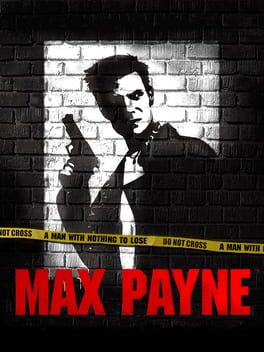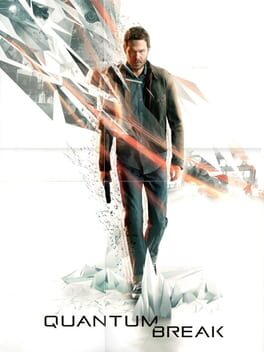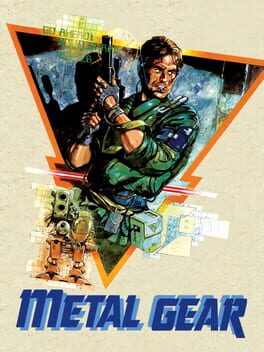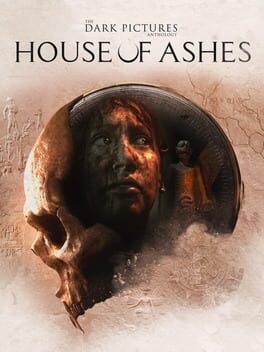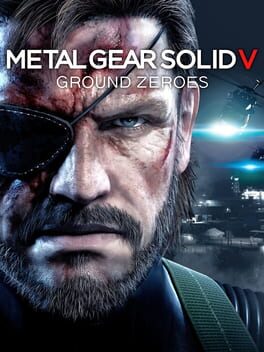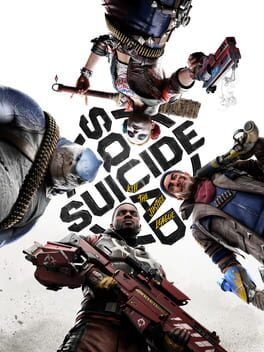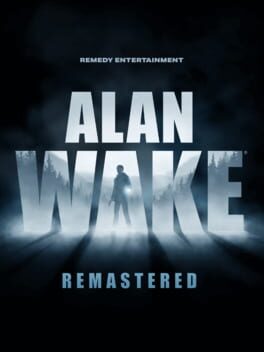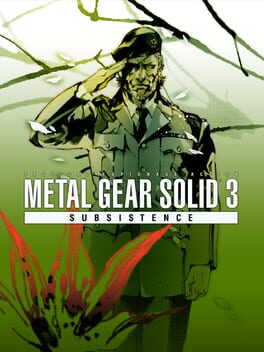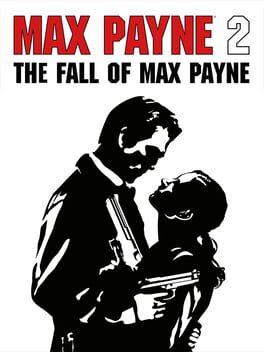TheWolfbat
2023
This review contains spoilers
Bought this at launch and played it when I could during a busy period of work, so I'm a bit late to the party...I really loved it!
For most of this game's runtime I thought it was very good, although potentially a little overhyped. I say this as a huge Remedy and Alan Wake 1 fan, so I was still loving my time with it, but was worried that maybe it had been oversold. I adore the first game, but I felt like its game mechanics never reached their full potential. I didn't feel that as strongly in this game, but it was in the back of my mind. This game added in a lot of new mechanics and switched up a lot of the old ones so it was very different. One of note is the idea of the mind place and the writer's room, both of which use Remedy's strength of environmental and narrative storytelling. I was feeling a bit similarly to AW1 that they were good but not used to their fullest extent until the last part of the game where Saga was thrown into the dark place and Alan was back in the real world as a playable character. Suddenly these places were used to subvert their previous uses and highlight this switch of locations in a way that I truly don't think could have been done any better. The last chunk of this game has the gameplay and narrative synergising in a way where all cylinders are firing, and it truly feels like the peak of what it could possibly be. I really, really, really loved this one. I think it'll take a few replays to further dissect the story to get my love for it above my love for the first game, but I do think with time it will as it's the better game.
My one gripe with the game, and gripe is maybe pushing it, is resource balancing. This is partially self inflicted as I was playing this more like an older Resident Evil title, but when you have low resources in your inventory the game tries to balance this by dropping more of it in containers and enemies. The issue here is that if you are keeping ammo in your save room inventory, you quickly become over- equipped for any encounter. This was largely of my own making because if I'd thrown the ammo I had into my largely vacant personal inventory space it wouldn't have happened, but I accidentally created a situation where I eventually had so much ammo that I had to start deleting resources and avoiding picking things up at times. This undercut the "survival" part of the survival horror for me, however this was only really an issue towards the end of the game. I'm curious if a harder difficulty would change this. All that being said, a game being made easier because of smart resource management is not entirely a bad thing, it just feels like it wasn't intentional. I still had a ton of fun looting and fighting.
Overall this game is a great time. This review is mainly to quickly jot down some thoughts I had in my head that I hadn't heard people talking about, and there is so much more to be said about this game. I truly love it, and it is such a triumph of narrative and metanarrative fiction. I will be revisiting it often and I very much look forward to what is next on Remedy's docket.
For most of this game's runtime I thought it was very good, although potentially a little overhyped. I say this as a huge Remedy and Alan Wake 1 fan, so I was still loving my time with it, but was worried that maybe it had been oversold. I adore the first game, but I felt like its game mechanics never reached their full potential. I didn't feel that as strongly in this game, but it was in the back of my mind. This game added in a lot of new mechanics and switched up a lot of the old ones so it was very different. One of note is the idea of the mind place and the writer's room, both of which use Remedy's strength of environmental and narrative storytelling. I was feeling a bit similarly to AW1 that they were good but not used to their fullest extent until the last part of the game where Saga was thrown into the dark place and Alan was back in the real world as a playable character. Suddenly these places were used to subvert their previous uses and highlight this switch of locations in a way that I truly don't think could have been done any better. The last chunk of this game has the gameplay and narrative synergising in a way where all cylinders are firing, and it truly feels like the peak of what it could possibly be. I really, really, really loved this one. I think it'll take a few replays to further dissect the story to get my love for it above my love for the first game, but I do think with time it will as it's the better game.
My one gripe with the game, and gripe is maybe pushing it, is resource balancing. This is partially self inflicted as I was playing this more like an older Resident Evil title, but when you have low resources in your inventory the game tries to balance this by dropping more of it in containers and enemies. The issue here is that if you are keeping ammo in your save room inventory, you quickly become over- equipped for any encounter. This was largely of my own making because if I'd thrown the ammo I had into my largely vacant personal inventory space it wouldn't have happened, but I accidentally created a situation where I eventually had so much ammo that I had to start deleting resources and avoiding picking things up at times. This undercut the "survival" part of the survival horror for me, however this was only really an issue towards the end of the game. I'm curious if a harder difficulty would change this. All that being said, a game being made easier because of smart resource management is not entirely a bad thing, it just feels like it wasn't intentional. I still had a ton of fun looting and fighting.
Overall this game is a great time. This review is mainly to quickly jot down some thoughts I had in my head that I hadn't heard people talking about, and there is so much more to be said about this game. I truly love it, and it is such a triumph of narrative and metanarrative fiction. I will be revisiting it often and I very much look forward to what is next on Remedy's docket.
In short, MGS2 is a really great game that translates MGS to the sixth generation of consoles really well just like MGS did to Metal Gear for the fifth generation. The stealth is all really fun, with great logic puzzles that toe the line between realism and meta awareness of itself as a game. It is everything the first one was but better in terms of gameplay.
I'm hitting a snag on being firm on which I ultimately prefer. The gameplay sections of this avoided the occasional frustration of MGS, but the narrative lost me a little. The MGS franchise is over-the-top convoluted (and that really is part of the appeal for me) but while MGS struck a balance with this, MGS2 feels like it goes off on the deep end in the final act. The plot itself is relatively simple (relatively doing legwork here) but is revealed in something like 5 twists of who ACTUALLY was behind it all. I've had no problem following the plot so far in the franchise, but the ending here took some real focus to sift through, and I don't necessarily feel like that's the case because it's clever. That being said, there are some interesting themes being dissected here about the overreach of government and the information age, something I respect immensely given that it came out just after and was in production before 9/11.
The fact that I have so much and more to say about the plot does prove to me it has value, but I think it falls short of 5 stars because its reach exceeds its grasp ever so slightly here ...I look forward to seeing the series continue to strive for those heights. All in all, really fun and engaging regardless of a few potential flaws.
I'm hitting a snag on being firm on which I ultimately prefer. The gameplay sections of this avoided the occasional frustration of MGS, but the narrative lost me a little. The MGS franchise is over-the-top convoluted (and that really is part of the appeal for me) but while MGS struck a balance with this, MGS2 feels like it goes off on the deep end in the final act. The plot itself is relatively simple (relatively doing legwork here) but is revealed in something like 5 twists of who ACTUALLY was behind it all. I've had no problem following the plot so far in the franchise, but the ending here took some real focus to sift through, and I don't necessarily feel like that's the case because it's clever. That being said, there are some interesting themes being dissected here about the overreach of government and the information age, something I respect immensely given that it came out just after and was in production before 9/11.
The fact that I have so much and more to say about the plot does prove to me it has value, but I think it falls short of 5 stars because its reach exceeds its grasp ever so slightly here ...I look forward to seeing the series continue to strive for those heights. All in all, really fun and engaging regardless of a few potential flaws.
2001
A fun little time, although definitely dated. Remedy's immersive environments already show in this game which is really cool to see. When the mechanics came together and provided a moment straight out of a Hong Kong action flick it was truly something to behold, although those moments didn't show up as often as I like. Still really fun and a unique style of shooter though! The PC port of this on Windows 11 is busted though, be warned that it takes some fixed to really get going.
2016
I think Quantum break is a really interesting and great attempt at a mixed media narrative. It's not quite a show, not quite a video game. I think there's a lot that's great here. The decision making is really great in that no decision ever feels truly like the "correct" one, and the storytelling goes beyond the script and includes the environment and supplemental texts which Remedy does so well. The world field palpable and lived in, which goes a long way towards making the stakes of "saving the world" feel fresh.
I do think the combat is simply good to serviceable, and I almost wish this game focused fully on environmental exploration and storytelling to enhance a film narrative instead. I can see how that would be a touch too experimental though.
Overall really enjoyed my time with this one. I think someone who prefers gameplay over narrative would struggle to like this, but in a world where gameplay is almost always the primary driver of a video game, it's interesting to take a peek at a timeline where narrative is the well executed focus instead.
I do think the combat is simply good to serviceable, and I almost wish this game focused fully on environmental exploration and storytelling to enhance a film narrative instead. I can see how that would be a touch too experimental though.
Overall really enjoyed my time with this one. I think someone who prefers gameplay over narrative would struggle to like this, but in a world where gameplay is almost always the primary driver of a video game, it's interesting to take a peek at a timeline where narrative is the well executed focus instead.
2022
An excellent revival of the classic RE formula while still feeling thoroughly modern and unique. Whenever I stopped playing after discovering a new area, I always dreaded to boot it back up and find out what was waiting around the next corner, but I'm always glad I did. The multiple endings also have me wanting to replay this sometime soon. Perhaps not for everyone, but definitely a must play for survival horror fans out there.
1987
A game ahead of its time in every sense of the phrase. While really innovational with its gameplay, the age of this game does occasionally show. Brilliant interaction with the world and thoroughly engaging stealth is bogged down by a game that also isn't afraid to waste your time (especially in regards to exploration). While necessary to pad out play time in the past, it can make what would be a really strong title sometimes tedious. All that being said, it is totally playable to the gamer willing to explore or even the gamer willing to look up level layouts. Starting off the game as the former, halfway through I was unashamedly the latter.
The Dark Pictures Anthology has been a really fun movie night game franchise for me and some close friends since they first came out. We've been chasing the high of a playthrough of Until Dawn we all watched many years ago, but the Dark Pictures games haven't lived up...until now. House of Ashes seems to perfectly capture character interactions, clear themes, surprising twists, and real threats throughout that make the game so tense.
While still the same loop of quick time events, choice making and clue finding, this game works really well as it always feels like you're on the verge of discovery right before the reveal. More than the previous games, Man of Medan and Little Hope, House of Ashes has me seriously contemplating a second playthrough to see how I can correct the wrongs of my first one. This game would likely not have been as much fun on my own, but having played it in a group made for a really good time. As a game night with a group of IRL friends, I honestly couldn't recommend it more.
While still the same loop of quick time events, choice making and clue finding, this game works really well as it always feels like you're on the verge of discovery right before the reveal. More than the previous games, Man of Medan and Little Hope, House of Ashes has me seriously contemplating a second playthrough to see how I can correct the wrongs of my first one. This game would likely not have been as much fun on my own, but having played it in a group made for a really good time. As a game night with a group of IRL friends, I honestly couldn't recommend it more.
This review contains spoilers
While I do think this is overall a good game, it's not great and that's a really big let down to the franchise name. There's of course all the issues of the unfinished plot, which I thought would be somewhat noticeable but I didn't realise would be blatantly obvious and genuinely jarring.
Overall I do like the core gameplay loop of the open world, as well as base management, since I enjoyed Peacewalker a lot. However, I do feel like doing the side content alongside the story really hurts the pacing of the narrative. What makes this doubly bad is that once the plot actually starts getting interesting with the addition of Eli, Quiet's story coming to the forefront, and Skull-face out of the picture, the game just comes to an end. I feel like a lot of this game could have been trimmed, and the story could have been more focused and actually finished within the same development time. Truthfully (and I felt this way with Peacewalker too), I don't see how this telling of Big Boss' story serves well as a prequel. With Peacewalker and this game, I come out of it feeling like Big Boss is still ultimately a force for good, but then Metal Gear's plot suddenly makes him a villain. Both this game and Peacewalker serve more to muddle Big Boss' villainy unlike MGS3 providing clear context for the man he would become. I almost wish you were playing a more obviously villainous PMC group instead of one distinguished from the others in the game (with the exception for their penchant for torture).
This game has a weird sensation of being both undercooked and overcooked at the same time, with a few parts of it being just right. I think one of it's biggest sins is simply being a mainline entry. The plot of Metal Gear Solid wrapped up in MGS4, and after that I think all that this franchise had room for was spin offs (with even that being overdone).
The game is definitely not bad, but it pales in comparison to a franchise with multiple titans of narrative in the gaming industry.
Overall I do like the core gameplay loop of the open world, as well as base management, since I enjoyed Peacewalker a lot. However, I do feel like doing the side content alongside the story really hurts the pacing of the narrative. What makes this doubly bad is that once the plot actually starts getting interesting with the addition of Eli, Quiet's story coming to the forefront, and Skull-face out of the picture, the game just comes to an end. I feel like a lot of this game could have been trimmed, and the story could have been more focused and actually finished within the same development time. Truthfully (and I felt this way with Peacewalker too), I don't see how this telling of Big Boss' story serves well as a prequel. With Peacewalker and this game, I come out of it feeling like Big Boss is still ultimately a force for good, but then Metal Gear's plot suddenly makes him a villain. Both this game and Peacewalker serve more to muddle Big Boss' villainy unlike MGS3 providing clear context for the man he would become. I almost wish you were playing a more obviously villainous PMC group instead of one distinguished from the others in the game (with the exception for their penchant for torture).
This game has a weird sensation of being both undercooked and overcooked at the same time, with a few parts of it being just right. I think one of it's biggest sins is simply being a mainline entry. The plot of Metal Gear Solid wrapped up in MGS4, and after that I think all that this franchise had room for was spin offs (with even that being overdone).
The game is definitely not bad, but it pales in comparison to a franchise with multiple titans of narrative in the gaming industry.
Played this one both out of curiosity and as a big fan of the original Arkham games curious about what Rocksteady did with the world and setting. I'm reviewing this having finished the game but not having engaged with the endgame.
The game has glimmers of goodness that shine through the goop of the looter shooter system it's designed around. Let's start with the good. I actually really enjoyed the characters and the humour. I think there is some issue with comedic timing where the voice lines are spaced just a little too clear of each other, but overall each character has a unique charm. The story itself is good as a premise, with the idea of taking beloved characters in the Justice League and making you kill them. I feel like it never really gets explored and that the pacing is off somehow though, since it feels like it takes forever to kill anyone and then you're killing them all at once. I feel like stretching out the campaign a bit to having the squad work up to each member of the League would be cool, but what's here is serviceable. I do really like all the characters in the home base, and the chaos of ARGUS working with supervillains. For what it's worth, I do also find the base combat fun. I think it's the most fun when the game has you putting out a million fires in terms of objectives, while cutting through the enemy troopers to get there. The power fantasy but overwhelming odds comes together really well when that happens, but really that's only a fraction of the missions. Hands down the best part of the game was the "Batman Experience" in the beginning of the game wherein Batman uses all his moves from the Arkham games against you. This was a really great subversion that built off of your familiarity with the character, and I think that familiarity with the other Rocksteady versions of the League is sorely missing. Batman does really shine though. While the plot can be a bit lacking, I do think the audio logs do really well to set up Braniac and how the League lost to him. There aren't even that many logs to listen to and they're easy to collect, so I do think this is a common criticism that doesn't have as much merit as others. I can't deny that seeing it rather than hearing it, even for just a scene, would have gone a longer way.
The type of gameplay that sucks is missions where you can only kill enemies in a certain way, like grenades or critical hits, because it feels like it's not necessarily difficult but just tedious. This might be a little more fun if you engage with the weapon system for each mission, but the looter shooter equipment stuff just does not appeal to me at all. Keeping track of a million little stats with incentives to craft even more weapons is just life draining as opposed to something Ratchet & Clank-esque where each each weapon fills a well defined niche. Instead I just found myself using what worked until it didn't, and then picking the next gun without negative effects and decent damage output. And even then, the guns you get near the beginning of the game will last you throughout the game. All of this would be a small deal if it wasn't for the fact that every side quest incentivises you with these rewards. I ended up doing all the support missions just to get the achievements, but it did make me question doing them as they repeated the same gimmicks.
The collectables are also just lame. Riddler trophies make a return, but they are all in obvious spots that you just need to pass to have them highlighted on the radar. Gone are the challenges or weird nooks from the Arkham games, instead making it pretty banal. I think Rocksteady knew this since there are a fraction of them here compared to the Arkham games. The Riddler challenges themselves are movement challenges and the only way to get free cosmetics. These were actually not so bad as they did test your knowledge of the movement mechanics on each character, but they were never an edge of your seat challenge. The cosmetic rewards themselves really sucked. The colour palettes for the default skins were nice, but the only actual cosmetic changes you get are for the "prison uniform" skins which pale in comparison to anything else. I'm guessing this is a purposeful way to get players to buy the cooler cosmetics.
All the League bossfights were also underwhelming. It may have been the difficulty I was on, but they all felt pretty simple and unchallenging. They usually revolved around one mechanic to make the enemy vulnerable, and then just shooting the shit out of them. The entire game has a million mechanics such as the Ivy missions with the affliction spreading plants, and the Gizmo vehicle setpieces. These feel really weirdly separated from the rest of the game. It does come together in the Braniac fight where you use everything against him simultaneously, which you'll need to since he is an upgraded version of the Flash fight with a ton of goons to fight and heal him. These mechanics actually all come together really well in this fight, but it's a shame that 20 hours of stilted side missions really only leads to one moment of true synergy.
Overall, honestly, this game is fine. It will not succeed as a looter shooter but it's perfectly serviceable to kill 20 hours if you get it on sale sometime. The gameplay and plot would both shine a lot more if they weren't in service to the live service seasonal content model since there isn't any finality to the end of the game, and the loot system is over-designed and too tedious to engage with.
The game has glimmers of goodness that shine through the goop of the looter shooter system it's designed around. Let's start with the good. I actually really enjoyed the characters and the humour. I think there is some issue with comedic timing where the voice lines are spaced just a little too clear of each other, but overall each character has a unique charm. The story itself is good as a premise, with the idea of taking beloved characters in the Justice League and making you kill them. I feel like it never really gets explored and that the pacing is off somehow though, since it feels like it takes forever to kill anyone and then you're killing them all at once. I feel like stretching out the campaign a bit to having the squad work up to each member of the League would be cool, but what's here is serviceable. I do really like all the characters in the home base, and the chaos of ARGUS working with supervillains. For what it's worth, I do also find the base combat fun. I think it's the most fun when the game has you putting out a million fires in terms of objectives, while cutting through the enemy troopers to get there. The power fantasy but overwhelming odds comes together really well when that happens, but really that's only a fraction of the missions. Hands down the best part of the game was the "Batman Experience" in the beginning of the game wherein Batman uses all his moves from the Arkham games against you. This was a really great subversion that built off of your familiarity with the character, and I think that familiarity with the other Rocksteady versions of the League is sorely missing. Batman does really shine though. While the plot can be a bit lacking, I do think the audio logs do really well to set up Braniac and how the League lost to him. There aren't even that many logs to listen to and they're easy to collect, so I do think this is a common criticism that doesn't have as much merit as others. I can't deny that seeing it rather than hearing it, even for just a scene, would have gone a longer way.
The type of gameplay that sucks is missions where you can only kill enemies in a certain way, like grenades or critical hits, because it feels like it's not necessarily difficult but just tedious. This might be a little more fun if you engage with the weapon system for each mission, but the looter shooter equipment stuff just does not appeal to me at all. Keeping track of a million little stats with incentives to craft even more weapons is just life draining as opposed to something Ratchet & Clank-esque where each each weapon fills a well defined niche. Instead I just found myself using what worked until it didn't, and then picking the next gun without negative effects and decent damage output. And even then, the guns you get near the beginning of the game will last you throughout the game. All of this would be a small deal if it wasn't for the fact that every side quest incentivises you with these rewards. I ended up doing all the support missions just to get the achievements, but it did make me question doing them as they repeated the same gimmicks.
The collectables are also just lame. Riddler trophies make a return, but they are all in obvious spots that you just need to pass to have them highlighted on the radar. Gone are the challenges or weird nooks from the Arkham games, instead making it pretty banal. I think Rocksteady knew this since there are a fraction of them here compared to the Arkham games. The Riddler challenges themselves are movement challenges and the only way to get free cosmetics. These were actually not so bad as they did test your knowledge of the movement mechanics on each character, but they were never an edge of your seat challenge. The cosmetic rewards themselves really sucked. The colour palettes for the default skins were nice, but the only actual cosmetic changes you get are for the "prison uniform" skins which pale in comparison to anything else. I'm guessing this is a purposeful way to get players to buy the cooler cosmetics.
All the League bossfights were also underwhelming. It may have been the difficulty I was on, but they all felt pretty simple and unchallenging. They usually revolved around one mechanic to make the enemy vulnerable, and then just shooting the shit out of them. The entire game has a million mechanics such as the Ivy missions with the affliction spreading plants, and the Gizmo vehicle setpieces. These feel really weirdly separated from the rest of the game. It does come together in the Braniac fight where you use everything against him simultaneously, which you'll need to since he is an upgraded version of the Flash fight with a ton of goons to fight and heal him. These mechanics actually all come together really well in this fight, but it's a shame that 20 hours of stilted side missions really only leads to one moment of true synergy.
Overall, honestly, this game is fine. It will not succeed as a looter shooter but it's perfectly serviceable to kill 20 hours if you get it on sale sometime. The gameplay and plot would both shine a lot more if they weren't in service to the live service seasonal content model since there isn't any finality to the end of the game, and the loot system is over-designed and too tedious to engage with.
I've finished the campaign on normal but haven't gotten to the DLC yet. Still, I wanted to jot down my thoughts quickly. Overall, really great! I can understand the praise it's gotten as a revitalisation of the franchise. I came into this having seen the Scary Game Squad playthrough way back in the day, but that was what got me interested in the franchise to begin with. Now I've finally gotten here and I got to revisit this with the experience of the franchise behind me, and I think it was a lot richer for it.
I think this game starts off just okay, with lots of deaths and trial and error. The switch to first person is a part of this, as now it's not just a survival horror where inventory management is rewarded, but also accuracy. I found switching to mouse and keyboard from a controller made the game dramatically easier.
It was also cool to see both the series influence and general horror inspirations in this game. Unlike something like Alan Wake 2, this game is firmly in the realm of B-horror and camp (if moreso in the general plot and homage of the game than direct tone like previous entries). Seeing the mansion exploration component in the first person with the creepy vibes of the bayou was a great blend of new and familiar. Interestingly, the southern murder family tone reminded me a lot of the 2000s gritty horror reboots kicked off by Texas Chainsaw Massacre, similarly taking a once great franchise that had run its course into a totally new direction. Specific parts of the game also make the homage to both the original and rebooted Texas Chainsaw very clear.
I also really enjoyed the atmosphere of the tanker section. RE is no stranger to the setting, and I'm glad that it somehow made a return here. Navigating the space despite a busted elevator was fun, although it really felt totally separated from the main game with an inventory reset. I think the reset was a bit of a crux as RE's formula doesn't work with late game horror, but rather builds towards a late game power fantasy.
I think the plot overall was a bit weak. I understand the want to start fresh with new characters and events that are only loosely tied back to the original, but I think the family (and especially Jack Baker) do the heavy lifting in terms of this game's iconography, and after that the events and people of the story become less memorable. Especially Eveline who feels like the most trope laden character in the series, and that says a lot when we remember it's RE we're talking about. That being said, the plot was serviceable and it facilitated really strong gameplay. I think that's a way better outcome than if plot and gameplay's quality were reversed.
Obviously I have a lot to say about this one. Overall, I really liked it! I'm curious to see how the threads of the ending are tied together in RE8, if they are at all.
I think this game starts off just okay, with lots of deaths and trial and error. The switch to first person is a part of this, as now it's not just a survival horror where inventory management is rewarded, but also accuracy. I found switching to mouse and keyboard from a controller made the game dramatically easier.
It was also cool to see both the series influence and general horror inspirations in this game. Unlike something like Alan Wake 2, this game is firmly in the realm of B-horror and camp (if moreso in the general plot and homage of the game than direct tone like previous entries). Seeing the mansion exploration component in the first person with the creepy vibes of the bayou was a great blend of new and familiar. Interestingly, the southern murder family tone reminded me a lot of the 2000s gritty horror reboots kicked off by Texas Chainsaw Massacre, similarly taking a once great franchise that had run its course into a totally new direction. Specific parts of the game also make the homage to both the original and rebooted Texas Chainsaw very clear.
I also really enjoyed the atmosphere of the tanker section. RE is no stranger to the setting, and I'm glad that it somehow made a return here. Navigating the space despite a busted elevator was fun, although it really felt totally separated from the main game with an inventory reset. I think the reset was a bit of a crux as RE's formula doesn't work with late game horror, but rather builds towards a late game power fantasy.
I think the plot overall was a bit weak. I understand the want to start fresh with new characters and events that are only loosely tied back to the original, but I think the family (and especially Jack Baker) do the heavy lifting in terms of this game's iconography, and after that the events and people of the story become less memorable. Especially Eveline who feels like the most trope laden character in the series, and that says a lot when we remember it's RE we're talking about. That being said, the plot was serviceable and it facilitated really strong gameplay. I think that's a way better outcome than if plot and gameplay's quality were reversed.
Obviously I have a lot to say about this one. Overall, I really liked it! I'm curious to see how the threads of the ending are tied together in RE8, if they are at all.
2021
I've played the original twice, and aside from some better animated and higher detail models this feels much the same (which is not a bad thing). I do think this remaster is more worth it to those who played on the 360 back in the day whereas hopping from the original PC version to this isn't that much of a facelift. That being said, Alan Wake is still a narratively great game with solid combat mechanics all wrapped up in some of the best atmosphere in video gaming. Bringing all of this without alteration but including all the bonus content of the collector's edition to a new audience is only a good thing in my books. This game isn't flawless, but damn if it isn't a world that I love to hop back into.
Metal Gear Solid 3 has really rich and detailed gameplay that can take you through multiple playthroughs where you still are learning new tricks. The downside to this is that when bosses require a specific part of that gameplay that you've gone through the whole game not even realising was possible. There were multiple bosses that flustered me and had me looking up methods to deal with them (although this may be tainted by the fact that I was trying to do a no kill playthrough on my first attempt). When it does come together though, it's amazing. A highlight for me was the battle with The End; a waiting game of hiding in the brush, sneaking dead slow, and looking for any hint of that enemy sniper. I think on repeat playthroughs I will definitely begin to grow on this game even more than I already have.
I think of the series so far, MGS3 also has the best story. While still having that ridiculous Kojima charm, there's a really heartfelt narrative that leaves you feeling shattered and empathetic with Naked Snake by the end of it. Some really great relationship development here, enhanced all the further having played Metal Gear 1 & 2 and knowing of Big Boss' own turn. The stories have been fun and thoughtful so far, but this has been by far the most effective for me.
MGS3 also feels like a PS3 game stuck on a PS2. This is both a compliment and a detriment. While the control scheme of MGS2 is passable in how that game presents itself, sneaking here with the inability to crouch walk and shooting with a button combo and pressure sensitivity makes this game feel more clunky than I'd like. I found I'd alert guards as often from Snake not doing what I intended on screen as much as my own mistakes, which did sour the experience a bit. With enough time in the game I'm sure this will be negated, but on a first playthrough it made for a rocky start. Once you do come to grips with the complexity of everything you can do in the game though, it makes you wonder why games today don't have the same detail in gameplay rather than graphical fidelity. While being stuck in the PS2 era of graphics, the world of MGS3 feels tangible and interactive which helps immersion more than something like mud or cloth physics ever could.
To end this meandering review, ultimately MGS3 is the strongest showing of what the PS2 was capable of, and is a brilliant game. Spending a few days away from it has me thinking fondly of it and upgrading my initial rating. While there are potential flaws for a first playthrough, I can see the benefit of them in the long term of replayability. I look forward to revisiting this one down the line.
I think of the series so far, MGS3 also has the best story. While still having that ridiculous Kojima charm, there's a really heartfelt narrative that leaves you feeling shattered and empathetic with Naked Snake by the end of it. Some really great relationship development here, enhanced all the further having played Metal Gear 1 & 2 and knowing of Big Boss' own turn. The stories have been fun and thoughtful so far, but this has been by far the most effective for me.
MGS3 also feels like a PS3 game stuck on a PS2. This is both a compliment and a detriment. While the control scheme of MGS2 is passable in how that game presents itself, sneaking here with the inability to crouch walk and shooting with a button combo and pressure sensitivity makes this game feel more clunky than I'd like. I found I'd alert guards as often from Snake not doing what I intended on screen as much as my own mistakes, which did sour the experience a bit. With enough time in the game I'm sure this will be negated, but on a first playthrough it made for a rocky start. Once you do come to grips with the complexity of everything you can do in the game though, it makes you wonder why games today don't have the same detail in gameplay rather than graphical fidelity. While being stuck in the PS2 era of graphics, the world of MGS3 feels tangible and interactive which helps immersion more than something like mud or cloth physics ever could.
To end this meandering review, ultimately MGS3 is the strongest showing of what the PS2 was capable of, and is a brilliant game. Spending a few days away from it has me thinking fondly of it and upgrading my initial rating. While there are potential flaws for a first playthrough, I can see the benefit of them in the long term of replayability. I look forward to revisiting this one down the line.
1998
A definite standout in the PS1 library, but a game that does occasionally show its age (particularly towards the end of the game).
The hilarious over the top nature and self-awareness of itself as a video game should by all rights undercut itself, but instead reinforces the game as reality. In doing so it masterfully gives it narrative real stakes as you're never quite sure to what lengths you can make a difference through some other approach. This is combined and enhanced by really solid puzzle solving that requires the player to apply some real world logic to the game, something that still makes Kojima unique here in 2023.
Overall a really good time that is easily approachable to a modern player, but not without its occasional frustrations. Its triumphs outshine those flaws like a supernova though, making this very difficult not to recommend.
The hilarious over the top nature and self-awareness of itself as a video game should by all rights undercut itself, but instead reinforces the game as reality. In doing so it masterfully gives it narrative real stakes as you're never quite sure to what lengths you can make a difference through some other approach. This is combined and enhanced by really solid puzzle solving that requires the player to apply some real world logic to the game, something that still makes Kojima unique here in 2023.
Overall a really good time that is easily approachable to a modern player, but not without its occasional frustrations. Its triumphs outshine those flaws like a supernova though, making this very difficult not to recommend.
Max Payne 2 is everything from the first one, but better presented and with more polish...yet somehow it doesn't quite feel as good as the first one to me. I think part of that has to do with the low budget charm of Max Payne 1 (that charm does still exist with the expanded in universe tv shows and advertisements).
While I like the quickness with which enemies die, I also feel that by default Max is far tankier and painkillers are far more abundant than in the first one. Max Payne 1 felt like each room was a puzzle you had to tackle with your limited resources, whereas Max Payne 2 feels like the world is a canvas for you to paint with an palette full of ammo and health. I don't think one is worse than the other, but I do prefer Max Payne 1's approach. I'm sure this would differ with the unlocked difficulty modes which I haven't touched yet though.
I think the story has a lot more to offer and is a lot more compelling. It somehow takes the nonsense of the first one and further ties it all together. Nothing new is necessarily learned with Max Payne 2, but the recontextualisation of existing characters and their conflicting goals makes for far more compelling cutscenes and interactions.
I really think this is an improvement over 1 in most ways while never going overboard with changes, but the lack of initial difficulty compared to 1 had me less engaged with the gameplay. That's totally personal taste, and I look forward to playing this again with the unlocked difficulty modes. With better story and presentation, but less compelling difficulty, this hits an equal 3 and a half stars to my rating of Max Payne 1. I think the goofball and indie charm of 1 makes it my favourite of the two though.
While I like the quickness with which enemies die, I also feel that by default Max is far tankier and painkillers are far more abundant than in the first one. Max Payne 1 felt like each room was a puzzle you had to tackle with your limited resources, whereas Max Payne 2 feels like the world is a canvas for you to paint with an palette full of ammo and health. I don't think one is worse than the other, but I do prefer Max Payne 1's approach. I'm sure this would differ with the unlocked difficulty modes which I haven't touched yet though.
I think the story has a lot more to offer and is a lot more compelling. It somehow takes the nonsense of the first one and further ties it all together. Nothing new is necessarily learned with Max Payne 2, but the recontextualisation of existing characters and their conflicting goals makes for far more compelling cutscenes and interactions.
I really think this is an improvement over 1 in most ways while never going overboard with changes, but the lack of initial difficulty compared to 1 had me less engaged with the gameplay. That's totally personal taste, and I look forward to playing this again with the unlocked difficulty modes. With better story and presentation, but less compelling difficulty, this hits an equal 3 and a half stars to my rating of Max Payne 1. I think the goofball and indie charm of 1 makes it my favourite of the two though.


